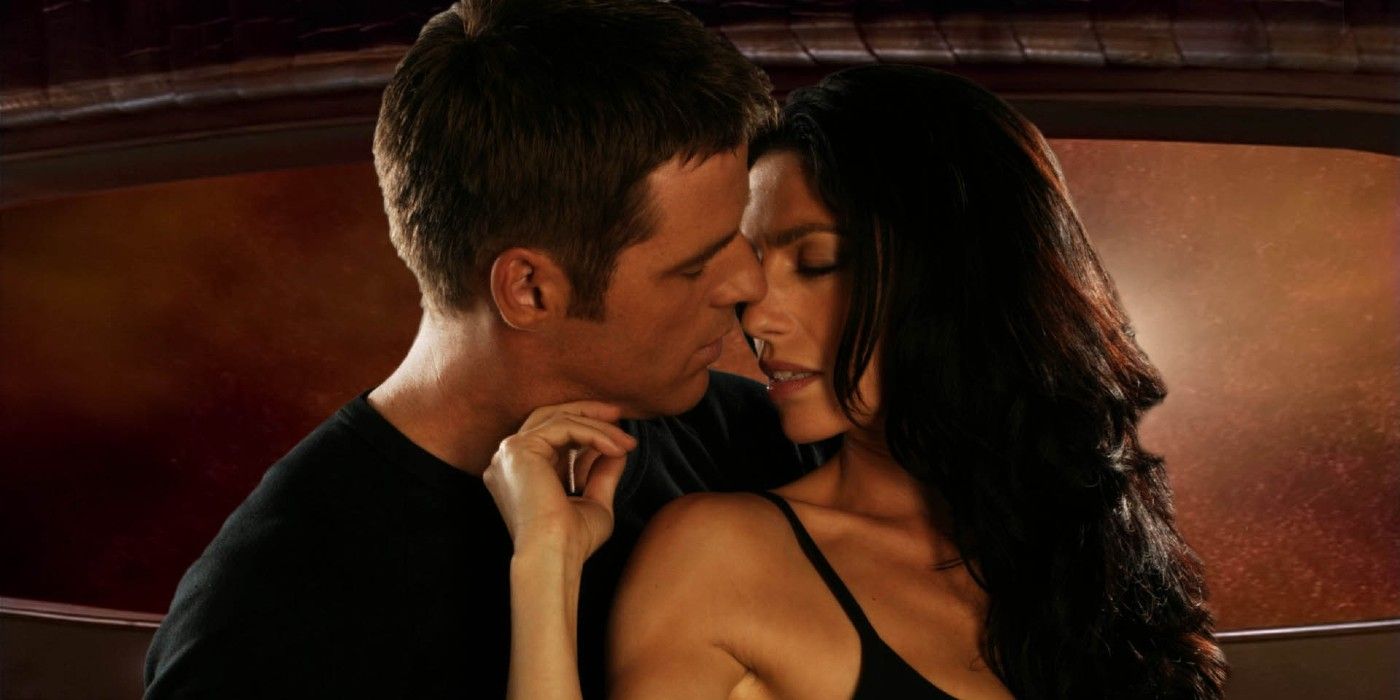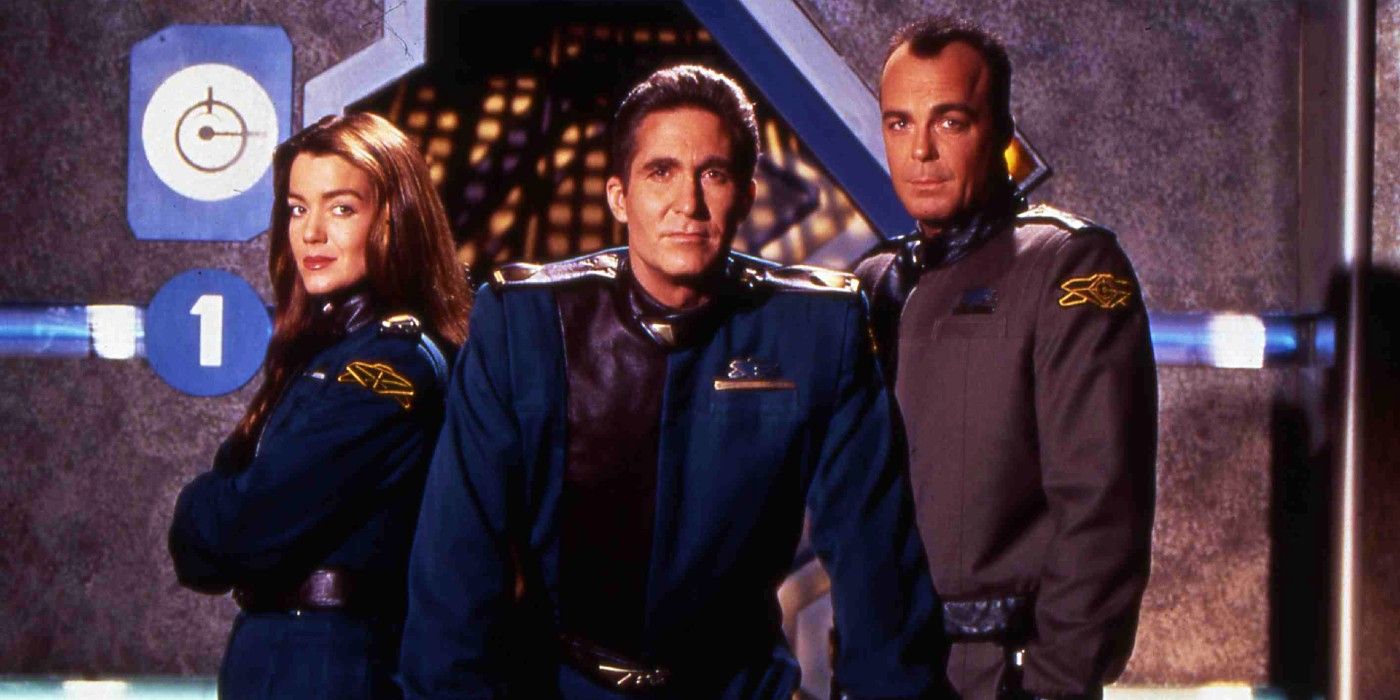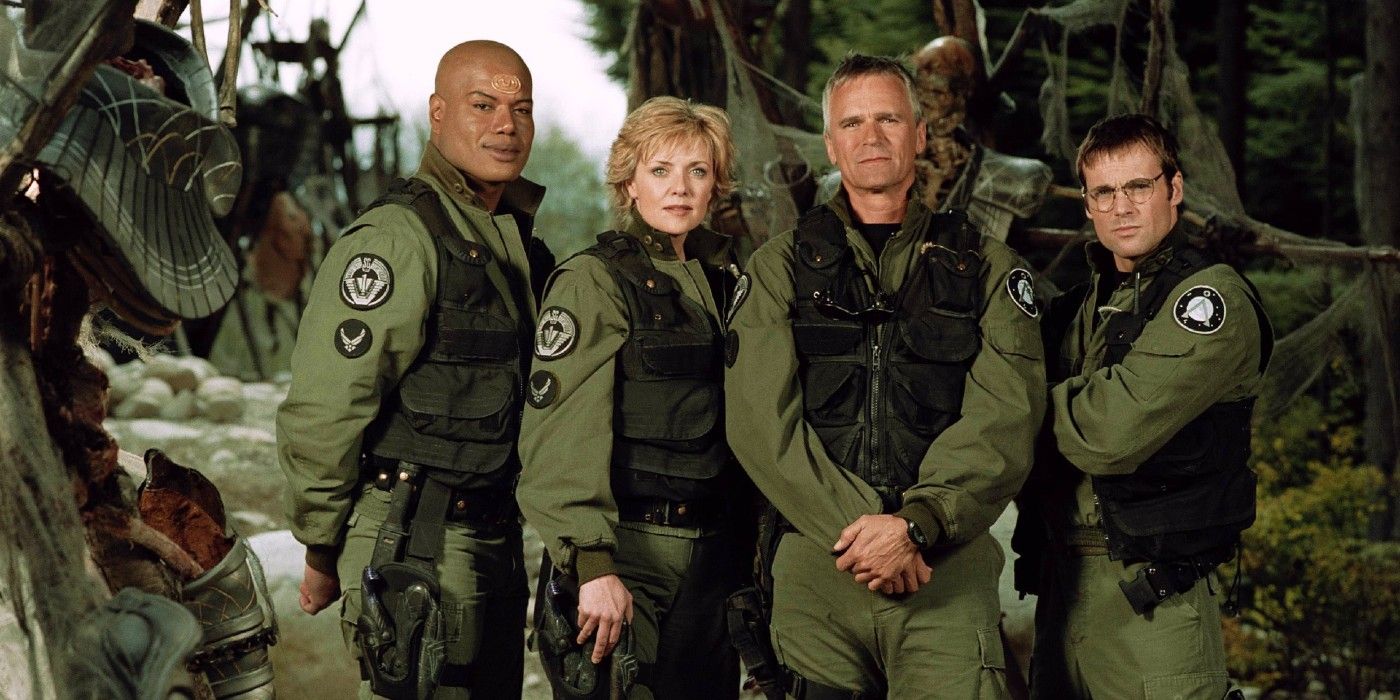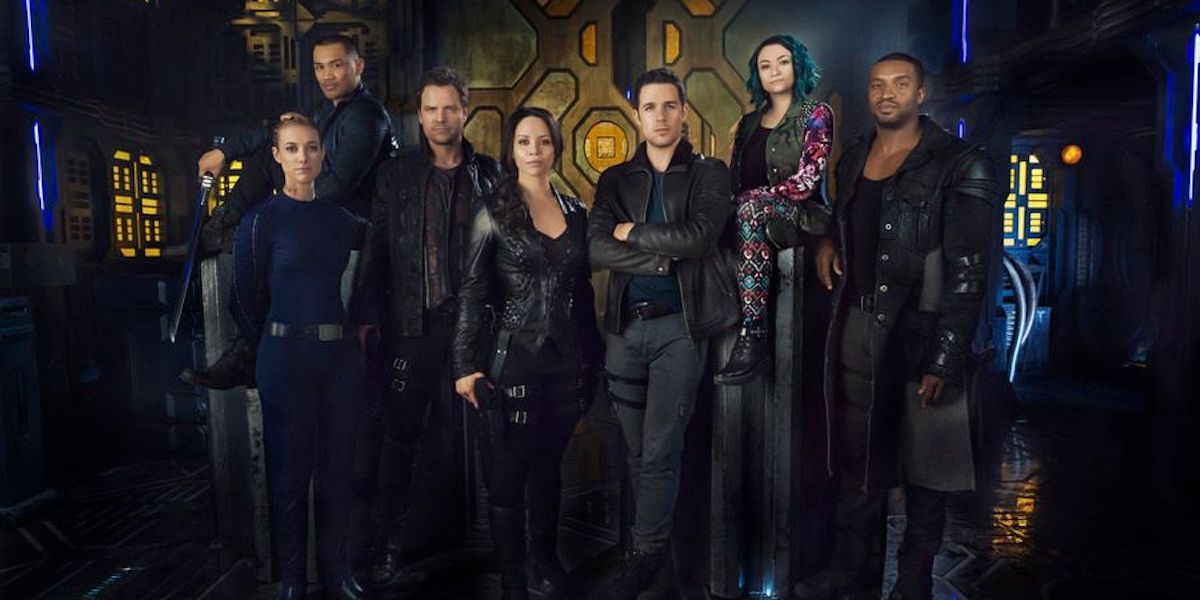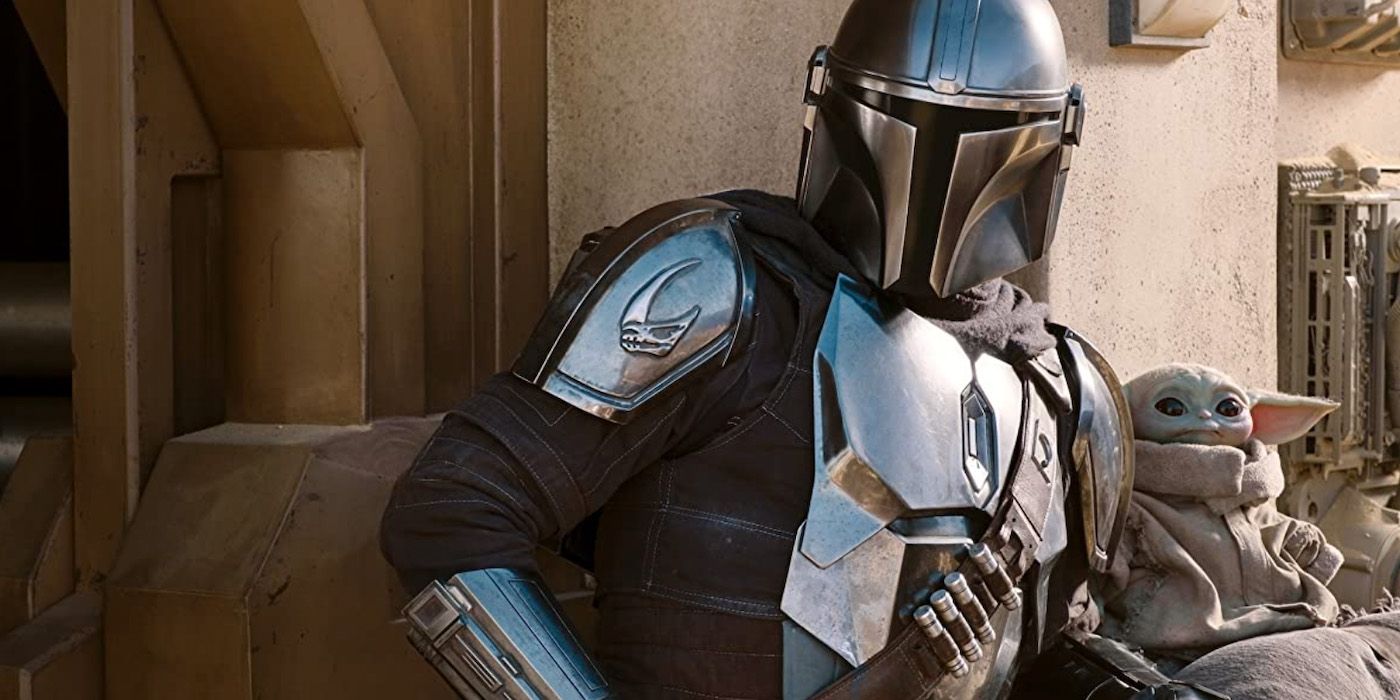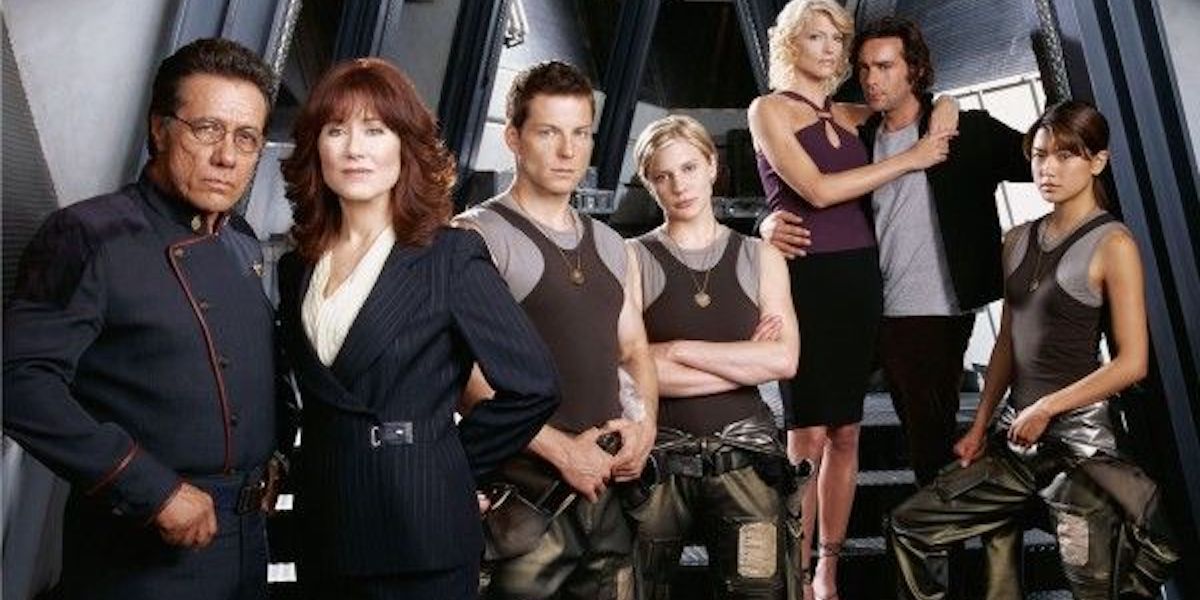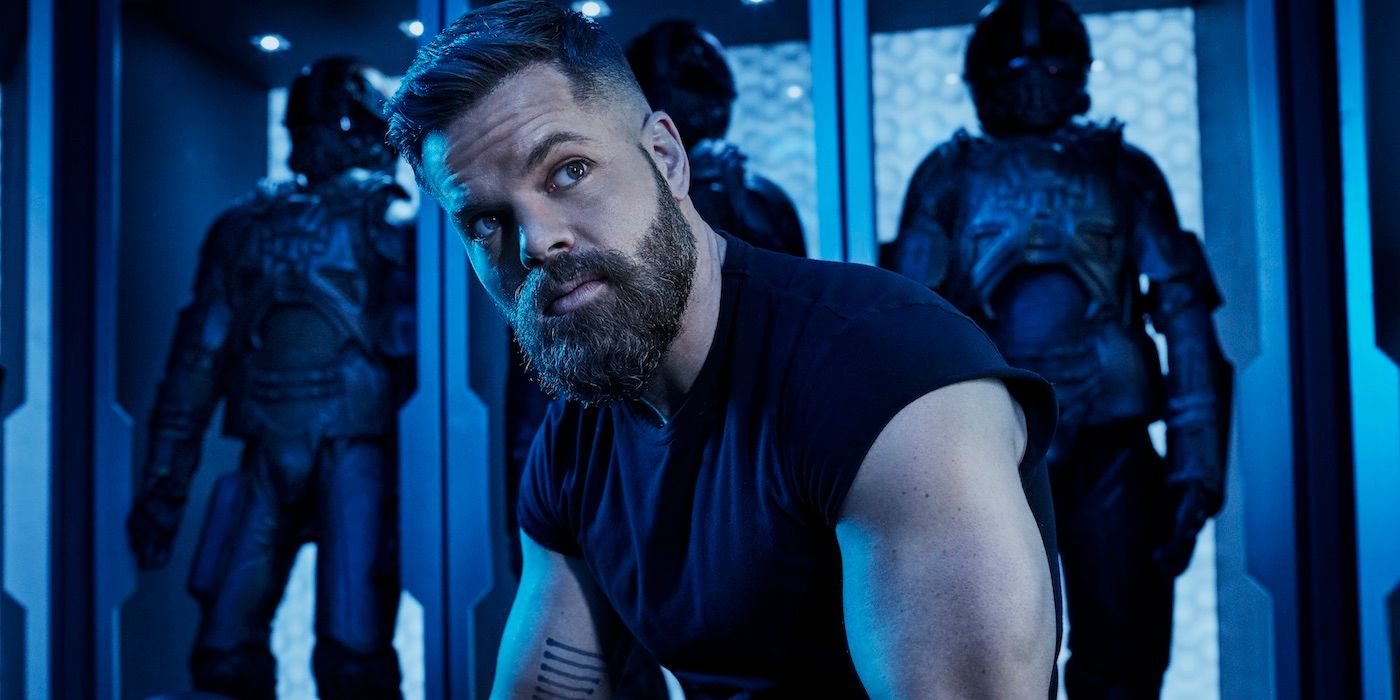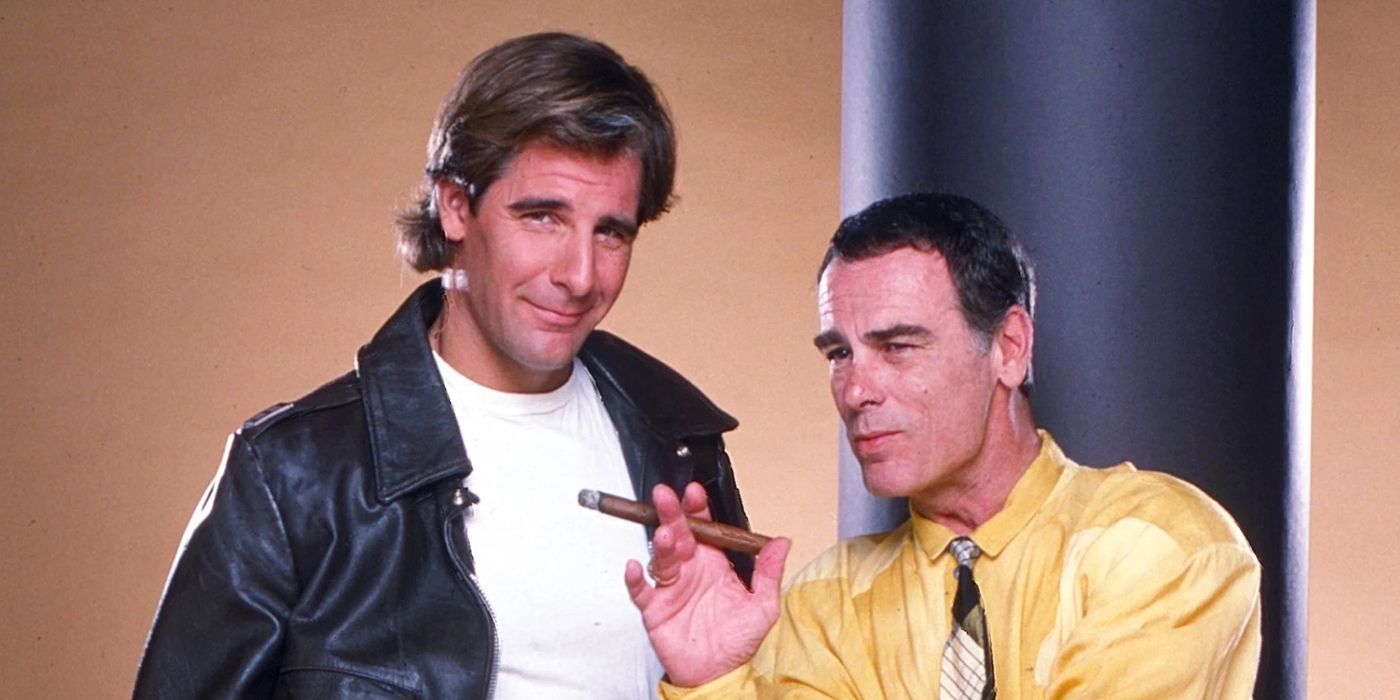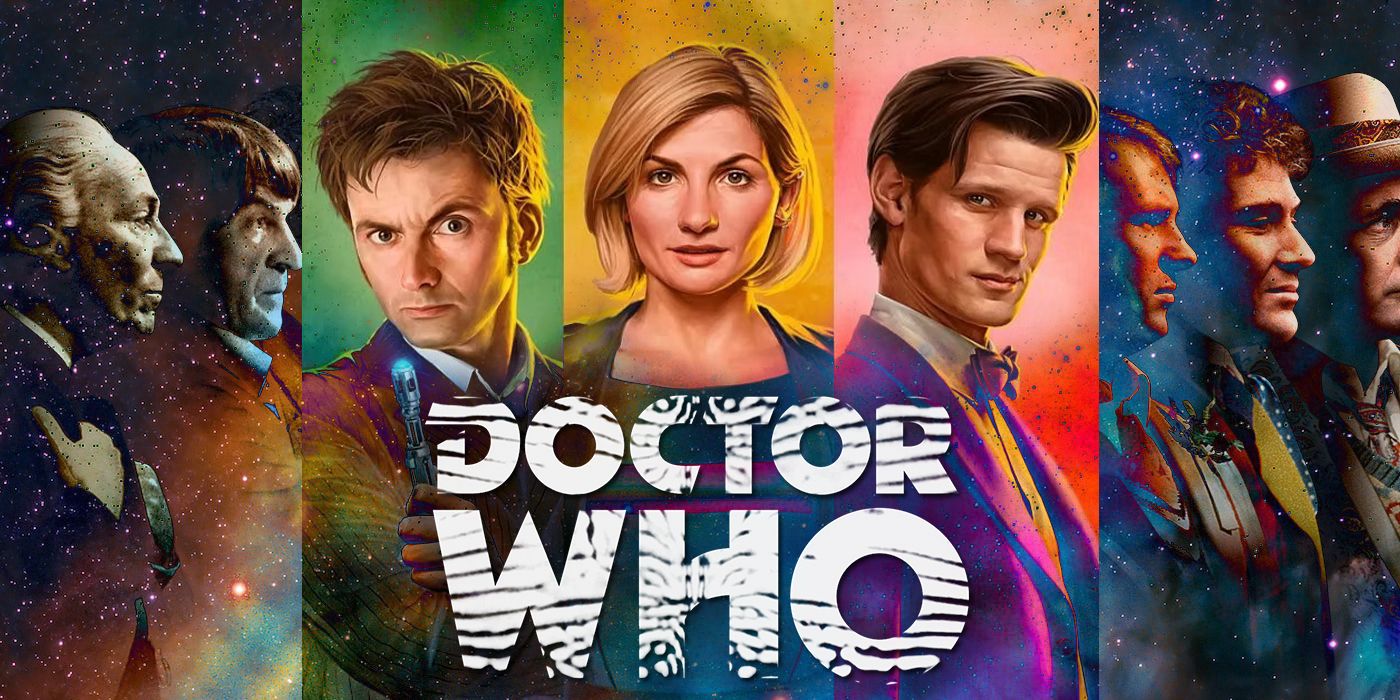There is no dearth of shows set in the world of Star Trek nowadays. Thanks to Paramount+ (previously known as CBS All Access), Trekkies can enjoy all kinds of fare, from darker serialized stories in Star Trek: Discovery and Star Trek: Picard to old-school episodic style of storytelling in Star Trek: Strange New Worlds . We also have animated fare that appeals to adults, like Star Trek: Lower Decks, and Star Trek: Prodigy, that’s geared to younger generations.
But just because we live in an age of "All Trek All the Time", doesn’t mean you can’t enjoy some excellent science-fiction adventures outside the United Federation of Planets. Shows set in space have been around forever, though some have been forgotten. The shows on this list have vastly different tones and production values, and every viewer will have their own favorites. If you love Star Trek, or episodic adventures in space, then you may want to catch up with these shows in between seasons.
Farscape
An astronaut from Earth finds himself aboard the living spaceship Moya as the ship and its crew fight to escape a fascist military operation known as the Peacekeepers. Farscape aired in the early noughties, in an attempt to capture audiences who were losing interest in Star Trek, but unlike Star Trek the central crew aren’t always upstanding citizens. The protagonist, John Crichton (Ben Browder), is a great audience stand-in, with his pop culture retorts and easy-going air about him keeping him relatable. His perfect match turns out to be Aeryn Sun, played by Claudia Black, a no-nonsense former soldier who thaws into a compassionate character by the end of the series. Their dynamic is a big appeal of the show, as are the visuals and animatronics that bring this sci-fi universe to life.
Babylon 5
Set aboard the titular space station, the space opera Babylon 5 focuses on what happens when humans and aliens must work together to bring peace to a galaxy that's still learning diplomacy. Babylon 5 doesn’t hold back on the horrors of war and the toll that it takes, while the show even touches on humanity’s darker aspects with plot lines featuring Xenophobic groups as well as the impact of political and religious influences. Parts of the show echo the atmosphere of Deep Space Nine, not only with its space station setting (there was some controversy around how similar the settings were) but also by showcasing how large-scale galactic events can affect the most ordinary of individuals.
Stargate
Stargate is a sprawling franchise of shows based on the Roland Emmerich film, beginning with Stargate SG-1, which debuted in the late 1990s and remains a favorite among genre fans. Later shows added to the canon of the franchise — the main premise revolves around Earth's discovery of a "Stargate," which is a cosmic portal that can ferry humans across vast distances. Of course, human beings decide to exploit this discovery for potential resources, which results in humanity battling aliens, especially the snake-like Goa'uld. Stargate is heavy on lore for sci-fi fans to immerse themselves in, but more importantly the show serves as "comfort viewing," with a fun and likable cast of characters.
Dark Matter
In the future, six people wake up on a spaceship with no knowledge of who they are and how they got there. They have to work together to discover the truth, but how can they trust each other? Based on the comic series of the same name, one of the most comparable aspects of Dark Matter to Star Trek is the introduction of The Android (Zoie Palmer), a character who is the smartest person in the room but knows little about human interaction. Though the show was canceled after only three seasons, it did develop a loyal fanbase, thanks to its combination of humor and darkness, with a diverse cast and a seemingly omnipresent villain. Dark Matter was less about the epic part of sci-fi, and more about the dynamics between people — something Star Trek fans will enjoy, since that franchise also emphasizes eclectic partnerships and friendships.
Killjoys
Killjoys deserved a lot more love than it received. This underrated sci-fi adventure follows Dutch (Hannah John-Kamen), Johnny (Aaron Ashmore), and D'avin (Luke Macfarlane), three bounty hunters who bungle every mission they’re on and still survive to tell the tale. The three protagonists have great chemistry and riff off each other perfectly. There’s a lot of quips mixed in with the brawls and space-hopping. What especially works for this Canadian show is that it’s a little more LGBTQIA+ friendly than Star Trek used to be, making for welcome change within the space opera genre. The show began with more episodic storytelling like older Trek, before introducing season-long villains like Deep Space Nine and Enterprise had. Also, one theme that appealed to fans of Killjoys was the concept of a found family — a quintessential theme of all Trek properties.
The Mandalorian
Star Wars and Trek are sometimes pitted against each other as franchises, which has never made sense. Now that Star Wars has debuted its own live-action series on Disney+, the differences between the franchises have decreased even more. You want an adventure in space? The Mandalorian has that as our hero flies from system to system to protect his young charge. You want aliens, betrayal, new and unconventional bonds formed? All of that can be found aboard the Razor Crest. What about epic battles, duels, and scheming villains — it’s in there! The Mandalorian is its own show, with a unique visual style, but the seasons so far definitely fill the void whenever you’re craving more Star Trek content, and you don’t feel like re-watching your favorite installment yet again.
Battlestar Galactica
If you’re a Trekkie, Battlestar Galactica has most likely been on your watchlist for a while. The reboot of the 1970s show is set aboard the titular spaceship, which leads the fleet carrying the last remaining humans in the universe. Admiral Adama (Edward James Olmos) oversees a crew consisting of fan-favorite characters like Katee Sackhoff’s Starbuck and Jamie Bamber’s Apollo, among others, alongside the newly-appointed President Laura Roslin (two-time Oscar nominee Mary McDonnell). Adama has a destination in mind, but his hopes may be dashed as the fleet battles an old enemy in new form. The Cylons are like the Borg, insidious and relentless. Worse, the Cylons in the reboot can look like humans, so trust is at a premium in the show. Some of the storylines and character arcs on the show were controversial up to and including the series finale, but Battlestar Galactica continues to be thought-provoking, and the characters will easily become some of your favorites.
Lost in Space
For fans of space and exploration, the 2018 reboot of Lost in Space (yes, another reboot!) will be right up your alley. The show follows the Robinson family, Molly (Maureen Robinson), John (Toby Stephens) and their three children, aspiring doctor Judy (Taylor Russell), budding writer Penny (Mina Sundwall), and science-enthusiast Will (Maxwell Jenkins), as they travel to outer space. The Robinsons face several obstacles in space — from the environment, alien species, robots, and even their fellow humans — but always find a way to power through. As long as this family are together, they can overcome anything. Although they do need more than a little help from their friendly, albeit, taciturn, robot. Who else will loudly proclaim ‘Danger, Will Robinson’ at the first signs of trouble?
The Expanse
Set in the 24th century (like several Star Trek shows), The Expanse is one of the more critically-acclaimed science-fiction shows of the new millennium. Based on a series of novels by Daniel Abraham and Ty Franck, the series follows several characters unwittingly intertwined in a giant conspiracy that threatens to destabilize the already teetering state of peace in the Solar System. The characters are distinct and compelling, but it’s the political storylines that keep you hooked. Shohreh Aghdashloo is particularly riveting as United Nations member Chrisjen Avasarala, as is Frankie Adams, who joined the show in the second season as gunnery sergeant Bobby Draper. The dynamics among the crew of the Rocinante ship are another reason you’ll continue to tune in. With The Expanse, come for the space adventure, stay for the political intrigue.
Quantum Leap
The original Quantum Leap and its 2022 sequel capture the core values of Star Trek—understanding, tolerance and a love of all people, irrespective of their differences. While the original show may feel a little dated nowadays (well, so does some of Star Trek), through Sam Beckett (Scott Bakula) ‘leaping’ into other people, the show examined tough topics including racism and women’s rights. It helps that Bakula also starred as Captain Jonathan Archer on Enterprise. The sequel series stars a diverse cast including Raymond Lee, Caitlin Bassett, Mason Alexander Park, Nanrisa Lee and Ernie Hudson. The show is an absolute delight with heartwarming stories brought to life by Lee’s effortless performance and a deeper relationship between the lead characters than there was in the original. The stories are also more representative, and include an episode with an Indian immigrant family, as well as an episode about a trans teenager who just wants to play basketball. There’s an extra layer of mystery added in that will keep you tuning in for more.
Doctor Who
The long-lasting British science-fiction show Doctor Who has the episodic, planet-hopping, and alien-encountering fun of Star Trek, but brings its own distinct flavor. Every era has its own appeal, and now that the show has broadened its horizons to cast more women, people of color, and trans actors as leads, Doctor Who is becoming more representative with every series. The show is quirky and silly, but can be scary (Weeping Angels, anyone?), thought-provoking, and somber (just take a look at Donna Noble's tragic companion arc). Everyone will have their own favorite Doctor, but there are a lot of companions to cheer for as well. There’s never a dull moment when the Time-Lord steps into their Tardis and decides which planet or year to fly off to. Every episode is an unforgettable adventure, and one never knows if the Doctor will meet a strange new alien, a historic figure from Earth’s past, or something else completely out of this world.

.jpg)
